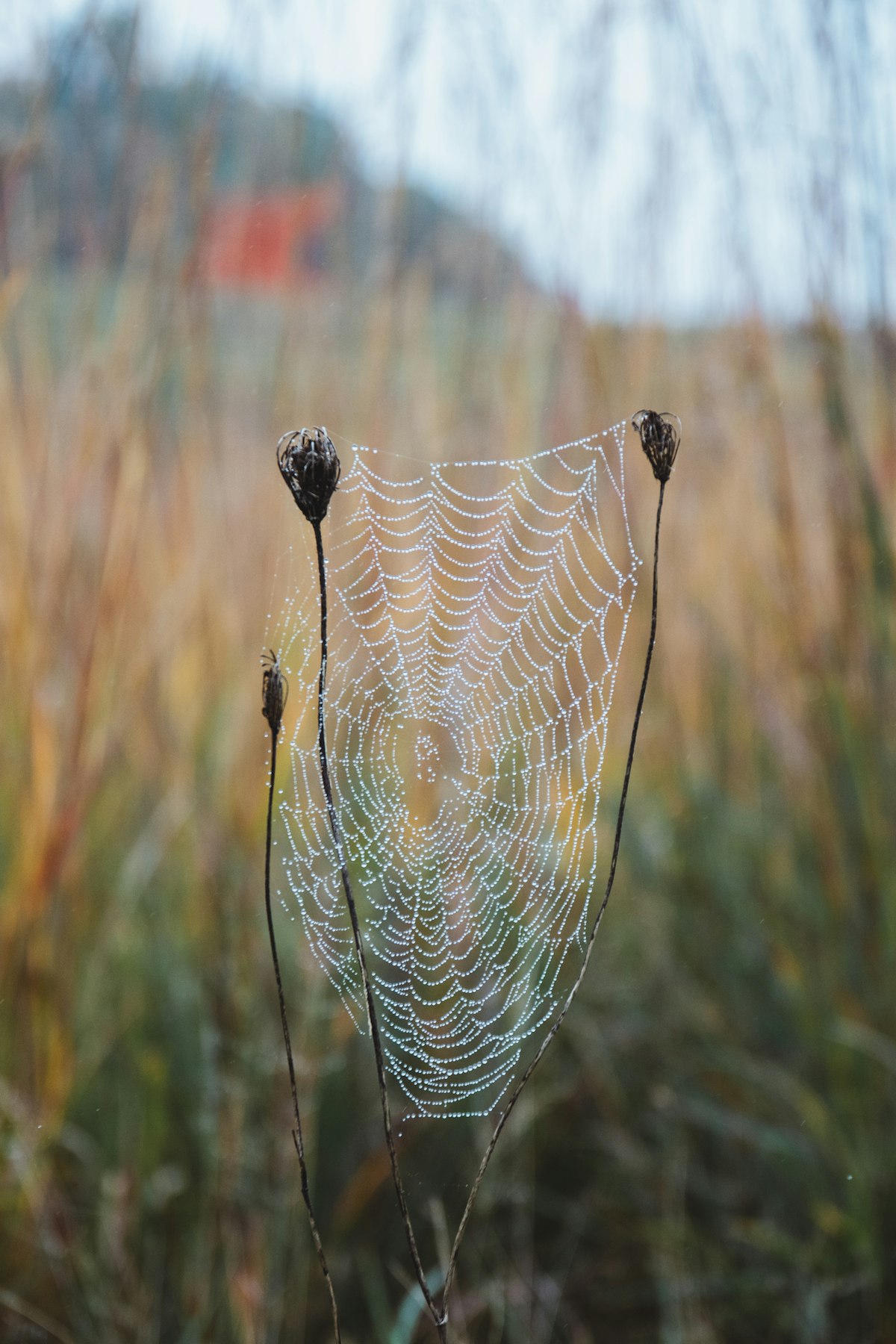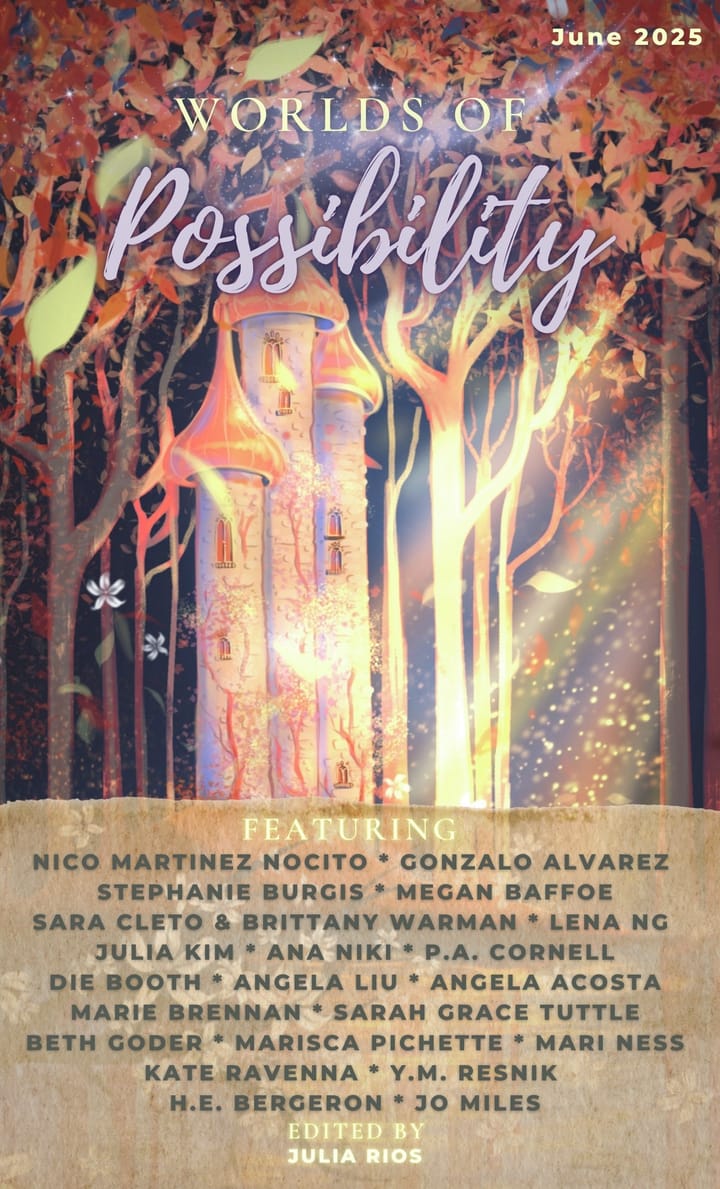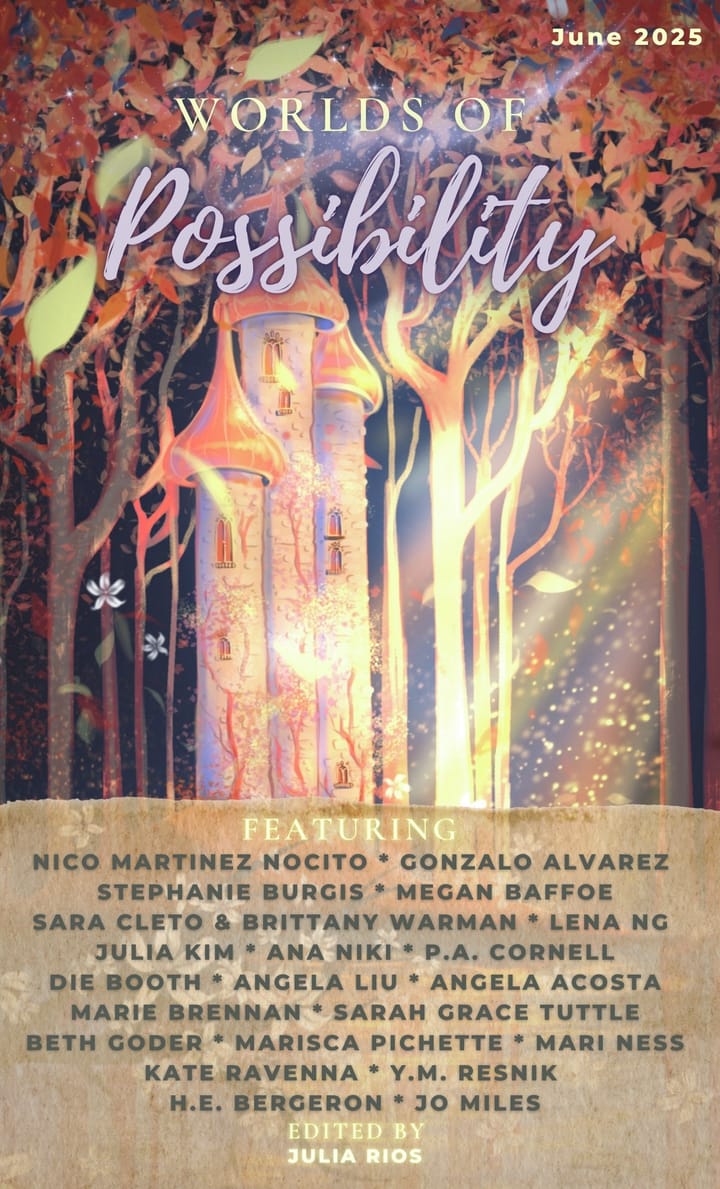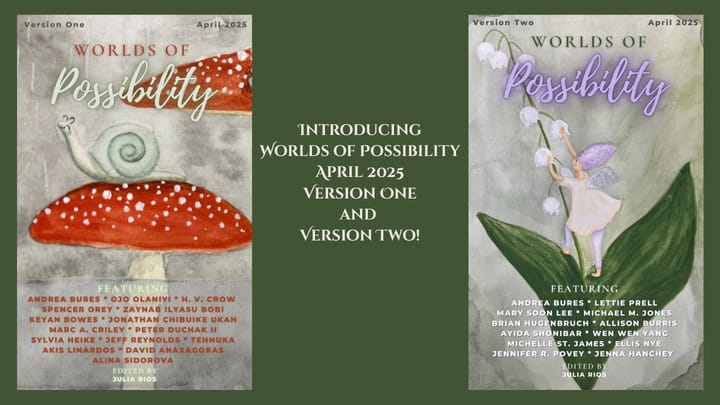Morning Dew - A Story by Megan Baffoe
This story is from the December 2023 issue of Worlds of Possibility. The ebook of the entire issue is available to download for free as an end of the year gift.

This story is from the December 2023 issue of Worlds of Possibility. The ebook of the entire issue is available to download for free as an end of the year gift here: https://www.juliarios.com/the-december-2023-issue-of-worlds-of-possibility/
Morning Dew
by Megan Baffoe
FAIRY: And I serve the Fairy Queen,
To dew her orbs upon the green, […]
I must go seek some dew-drops here,
And hang a pearl in every cow-slip’s ear.
--William Shakespeare, A Midsummer Night’s Dream (2.1)
Zahur read a lot, in-between his gardening, so when he started seeing the fairy, it wasn’t much of a surprise.
What was a surprise – and continued to be, every morning – was the fact that the fairy kept lingering.
He was an early riser. Dawn was his favourite time of day, a blossoming crocus in watercolours. And this summer, it was lovelier than ever, all because of the fairy. Often, Zahur would wake up to see that each petal of every flower had been embellished, row after row of gleaming pearls of morning dew. The garden looked like a light show.
And yet – somehow – he was most distracted by its engineer.
The fairy was objectively beautiful; all dark, shining curls, like Shakespeare had spilt his ink when writing him, threaded through with ribbons of gold. He had wings like cobwebs, and skin like honey, and eyes like daylilies. He moved with an unnatural grace.
Now, he smiled as if he could hear Zahur’s thoughts, and positioned a final pearl on one of the petunias. And then – with a flutter of his spider-web wings – he vanished.
Zahur didn’t go outside; didn’t call out. He knew, from experience, that that would only scare the fairy away. (Although A Midsummer Night’s Dream hadn’t elaborated on this point, Zahur presumed that his guest was probably already in violation of some strange, supernatural protocol.) So he drank his tea, and watched his garden, and waited for the sun to rise and burn the pearls into diamonds. It was a wonder, watching all the dew catch fire; he thought, in his more sentimental moments, that it must be how angels saw the stars. A thousand suns ripe for the picking, even if you couldn’t taste.
Taste.
Zahur couldn’t believe that he had never thought of it before. Really – after all the work the fairy had been doing – it was only polite. Just as you’d offer a builder a cup of tea.
After half an hour spent researching what do fairies eat and drink? – and then another, this time on the more specific how do you make sweetened butter? – Zahur felt reasonably confident in his ability to produce a suitable morning snack for a fairy. Milk, honey, fruit from the garden; he could technically help himself to the latter, but – perhaps out of politeness – hadn’t so far.
Zahur set his alarm earlier than usual to prepare the fairy’s breakfast. It wasn’t until he had set out the tray that the absurdity of the situation occurred to him. But then, he supposed, the path of true love never did run smooth.
He added a note, as non-demanding as he could make it – My name is Zahur.
Zahur’s instinct had been a good one. The fairy was glad for any and all offers of food.
Over the summer, it became clear that he had preferences. Stone fruit were better than berries, berries were better than vegetables, and absolutely nothing was better than pears; milk, although not a particular favourite, was always received gratefully. The fairy adored the special butter – and even just the brown sugar on its own – but that was a rare treat.
Zahur could admit, in the quiet of his own head, that he still probably made it more often than he should for someone who hadn’t even returned their own name.
Gratitude had been shown, in the fairy’s own way. Zahur’s flowers looked painted; the fruit were something out of a Rossetti poem. The trees glistened in shades of mahogany and honey-comb, branches curling into the sky like melting ribbons. No plants failed, nothing died; the animals and insects left everything edible alone. Even when the seasons began to shift, Zahur’s garden stayed a storybook.
The fairy, however, began to change.
The gold in his hair faded to silver, and the webbing of his wings began to glisten. His eyes were softer, darker, wider, blue-black Suns with lashes like bird-wings, and they frosted over at the sight of a pest near Zahur’s lettuces in a way that they hadn’t before. He outright refused any fruit that he didn’t particularly like, and demanded more of Zahur’s time and energy.
The notes attached to the breakfast trays became letters. The days became colder and colder.
Zahur knew that he should stop leaving the trays out. Or see a doctor, or move away, or break up with the fairy somehow. He didn’t. (Wouldn’t.)
His agony ended on the equinox.
The garden looked different, that day – more sinister, but no less beautiful. The tree trunks were draped in cobwebs, soft like silk, and the spiders on them elegant as dancers. The lines of them dripped with morning dew like diamonds, more valuable than any jewellery.
Because – in the very centre – the spiders had spelled out a name.
Kunal.
It meant ‘lotus’, Google told him. A flower that he did not as of yet have in his garden.
Kunal himself wasn’t there. Zahur could come up with plenty of reasons – anxiety, anger, shyness – but wasn’t sure which one would be applicable. His fairy had been unpredictable as of late. But that was okay too – Autumn was here, and change was coming; Zahur could interpret this sign without any research, could hold the feeling of victory in his chest even as he dragged himself away from the garden to buy some more brown sugar.
The falling leaves would be his new sunrise.
About the Author
Having studied English at Oxford, Megan Baffoe is now moving on to a Masters in Creative Writing. She likes fairytales, fraught family dynamics, and unreliable narration; she does not like Twitter, but can be found @meginageorge. Her published work is all available at https://meganspublished.tumblr.com.


